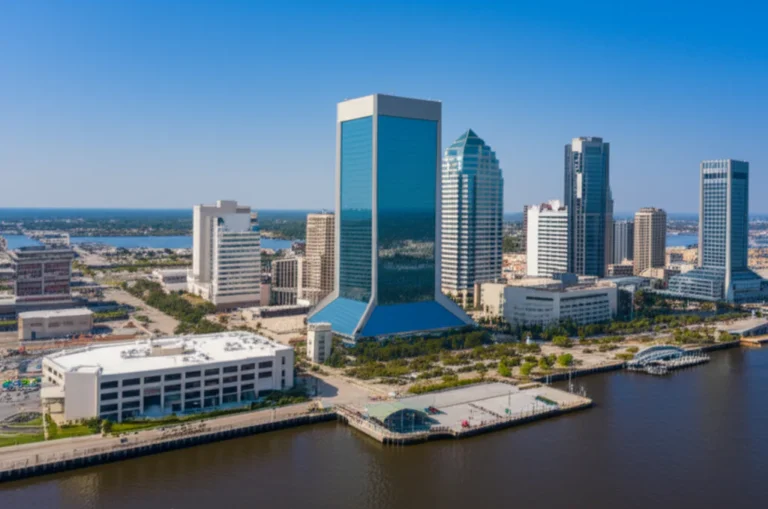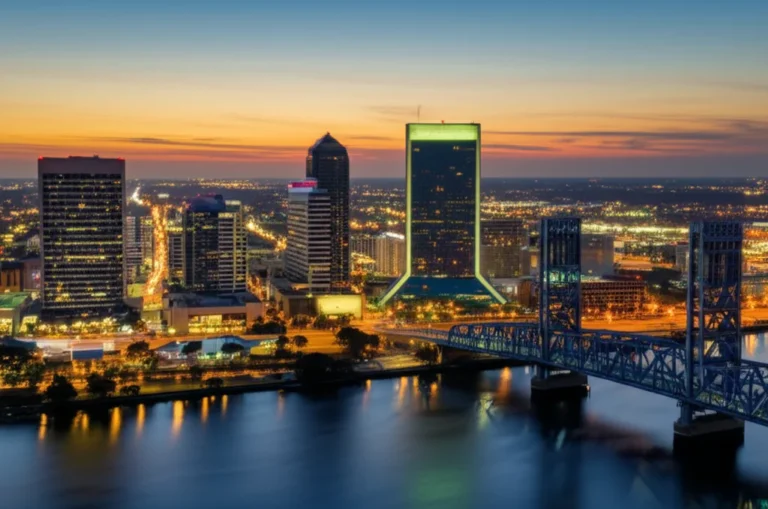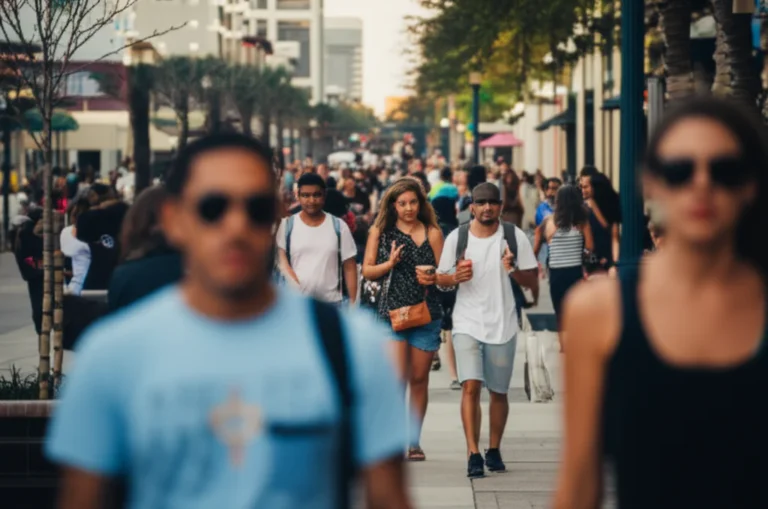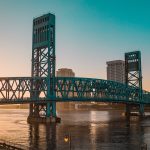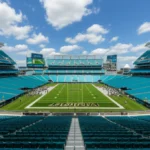Support our educational content for free when you purchase through links on our site. Learn more
Why Is Jacksonville So Bad? 17 Surprising Truths in 2025 🌴
Jacksonville often gets a bad rap — sprawling traffic jams, crime headlines, and a reputation for being “boring” swirl around this Florida metropolis. But is Jax really as “bad” as some say? As lifelong Jacksonville residents and experts at Jax Facts™, we’ve dug deep into the city’s history, challenges, and hidden gems to uncover 17 surprising reasons behind the mixed feelings about this city. Spoiler alert: some criticisms are legit, but many are myths or outdated stereotypes.
Did you know Jacksonville is the largest city by land area in the continental U.S., stretching over 840 square miles? That sheer size fuels many of its problems — and opportunities. Later, we’ll unpack everything from traffic nightmares on I-95 to the “beaches vs. downtown” divide, plus what the city is doing to turn things around. Whether you’re thinking of moving here or just curious, this guide will give you the full picture — no sugarcoating, just honest Jax talk.
Key Takeaways
- Jacksonville’s sprawling size is both a blessing and a curse, causing traffic headaches but offering diverse neighborhoods and green spaces.
- Crime rates are higher in certain areas, but many neighborhoods are safe and family-friendly.
- Public transportation is limited, making a car almost essential.
- The city is actively improving with new cultural events, economic growth, and environmental initiatives.
- Perceptions often lag behind reality — Jacksonville has a lot to offer beyond its “bad” reputation.
Looking to explore Jacksonville’s outdoors or beach lifestyle? Check out these essentials:
Ready to see Jacksonville with fresh eyes? Let’s dive in!
Table of Contents
- ⚡️ Quick Tips and Facts
- The “Bad” Rap: Why Does Jacksonville Get Such a Hard Time?
- A Glimpse into Jax’s Past: Understanding the Roots of its Reputation
- Unpacking the Challenges: 17 Reasons Why Some Call Jacksonville “Bad”
- The Sprawl Struggle: Navigating Jacksonville’s Sheer Size
- Traffic Troubles: The Daily Grind on I-95, JTB, and Beyond
- Public Transportation Pains: A Car-Centric City’s Dilemma
- Job Market Jitters: Wage Stagnation and Limited Opportunities
- Crime Concerns: Separating Fact from Fear in Duval County
- Public Education Hurdles: Report Card on Duval County Schools
- Healthcare Access: Finding Quality Care in a Growing City
- Environmental Woes: River Pollution and Hurricane Season Realities
- The “Boring” City Myth: Is Jacksonville Lacking in Culture & Entertainment?
- The Climate Conundrum: Heat, Humidity, and Mosquitoes, Oh My!
- Political Puzzles: Navigating Local Governance and Development
- Lack of Walkability & Bikeability: A Pedestrian’s Predicament
- The Beaches vs. Downtown Divide: Perceptions and Realities
- Limited Public Spaces & Green Areas (Beyond Parks): Urban Planning Gaps
- Infrastructure Strain: Aging Roads and Utilities
- Homelessness & Poverty: Visible Challenges in the Urban Core
- Perception vs. Reality: The Struggle to Shake Off Old Stereotypes
- Beyond the Negatives: What Jacksonville is Doing Right (and Where It’s Improving)
- Is Jacksonville Truly “Bad”? Our Expert Verdict
- Quick Tips for Thriving in Jacksonville (Despite the “Bad” Rap)
- Conclusion
- Recommended Links
- Frequently Asked Questions (FAQ) About Jacksonville Living
- Reference Links
⚡️ Quick Tips and Facts
If you’re considering moving to Jacksonville, Florida, or just curious about why it might have a “bad” reputation, start with the basics. Jacksonville is a large city with a diverse population and a wide range of experiences. To understand its reputation, it’s essential to look at various aspects, from education and geography to demographics and the local economy.
For a deeper dive into what makes Jacksonville famous, check out our related article on Why Is Jacksonville So Famous? 12 Reasons You’ll Love Jax in 2025 🌟.
Here are some quick tips and facts to get you started:
- Education: Explore the Jacksonville Education sector, including schools and universities.
- Geography: Understand the city’s layout and how its Jacksonville Geography affects daily life.
- Demographics: Look into the Jacksonville Demographics to understand the population’s diversity.
- Beaches: Enjoy the Jacksonville Beaches, a significant part of the city’s appeal.
Key Statistics
| Category | Statistic | Source |
|---|---|---|
| Population | Over 944,477 | United States Census Bureau |
| Median Home Price | Lower than the national average | Zillow |
| Average Temperature | 70°F | National Weather Service |
| Sunny Days | 225 days/year | National Oceanic and Atmospheric Administration |
The “Bad” Rap: Why Does Jacksonville Get Such a Hard Time?
Jacksonville often receives criticism for various reasons, including its sprawling layout, traffic issues, and high crime rate. However, it’s essential to consider multiple perspectives and not judge the city solely on these aspects.
For instance, an article from The Honest Local discusses the pros and cons of living in Jacksonville, highlighting both the challenges and the benefits. The city’s strong job market, low cost of living, and access to beaches are significant advantages.
Understanding the Criticism
To truly understand why Jacksonville gets a “bad” rap, let’s break down the criticisms:
- Traffic and Sprawl: The city’s large size and car-dependent culture contribute to traffic congestion.
- Crime Rate: Higher than the national average, with property crime being a significant issue.
- Education: The public school system faces challenges, including low graduation rates and poor academic performance.
A Glimpse into Jax’s Past: Understanding the Roots of its Reputation
Jacksonville’s history and development play a crucial role in shaping its current reputation. From its early days as a timber and railroad town to its growth into a major metropolitan area, the city has faced numerous challenges.
Historical Context
Understanding the historical context can provide insights into the city’s economic, social, and cultural development. For example, the city’s strategic location on the St. Johns River made it an attractive spot for trade and commerce.
Unpacking the Challenges: 17 Reasons Why Some Call Jacksonville “Bad”
There are several reasons why Jacksonville might be perceived as “bad.” Here are 17 aspects to consider:
- The Sprawl Struggle: Navigating Jacksonville’s sheer size can be overwhelming.
- Traffic Troubles: The daily grind on I-95, JTB, and beyond is a significant challenge.
- Public Transportation Pains: A car-centric city’s dilemma is the lack of comprehensive public transportation.
- Job Market Jitters: Wage stagnation and limited opportunities in certain sectors are concerns.
- Crime Concerns: Separating fact from fear in Duval County is essential.
- Public Education Hurdles: The report card on Duval County schools shows room for improvement.
- Healthcare Access: Finding quality care in a growing city can be challenging.
- Environmental Woes: River pollution and hurricane season realities are significant environmental concerns.
- The “Boring” City Myth: Is Jacksonville lacking in culture and entertainment?
- The Climate Conundrum: Heat, humidity, and mosquitoes are just a few of the climate-related challenges.
- Political Puzzles: Navigating local governance and development can be complex.
- Lack of Walkability & Bikeability: A pedestrian’s predicament in a car-dominated city.
- The Beaches vs. Downtown Divide: Perceptions and realities of the divide between these areas.
- Limited Public Spaces & Green Areas: Urban planning gaps affect the quality of life.
- Infrastructure Strain: Aging roads and utilities are a significant concern.
- Homelessness & Poverty: Visible challenges in the urban core that need addressing.
- Perception vs. Reality: The struggle to shake off old stereotypes and showcase the city’s true potential.
Beyond the Negatives: What Jacksonville is Doing Right (and Where It’s Improving)
Despite the challenges, Jacksonville has many positive aspects and areas of improvement. From its thriving arts scene to its outdoor recreational opportunities, there’s more to the city than its criticisms.
Positive Developments
- Economic Growth: Jacksonville is home to several major corporations, including CSX Corporation and Fidelity National Financial.
- Cultural Events: The city hosts various cultural events, such as the Jacksonville Jazz Festival.
- Environmental Initiatives: Efforts to improve the city’s environmental sustainability, such as the Jacksonville Environmental Protection Board, are underway.
Is Jacksonville Truly “Bad”? Our Expert Verdict
After considering the various aspects of Jacksonville, it’s clear that the city is not simply “bad” or “good.” Like any place, it has its challenges and advantages.
Expert Insights
Our team at Jax Facts™, specializing in all about Jacksonville, Florida, believes that understanding the city’s complexities is key to appreciating its true value. Whether you’re a potential resident, visitor, or business investor, looking beyond the surface is crucial.
Quick Tips for Thriving in Jacksonville (Despite the “Bad” Rap)
If you’re moving to or already living in Jacksonville, here are some quick tips to help you thrive:
- Explore the City: Discover hidden gems and favorite spots.
- Get Involved: Participate in local events and community activities.
- Stay Informed: Follow local news and updates to stay ahead of the curve.
For more information on Jacksonville and its many facets, visit our categories on Jacksonville Facts, Jacksonville Education, Jacksonville Geography, Jacksonville Demographics, and Jacksonville Beaches.
Conclusion
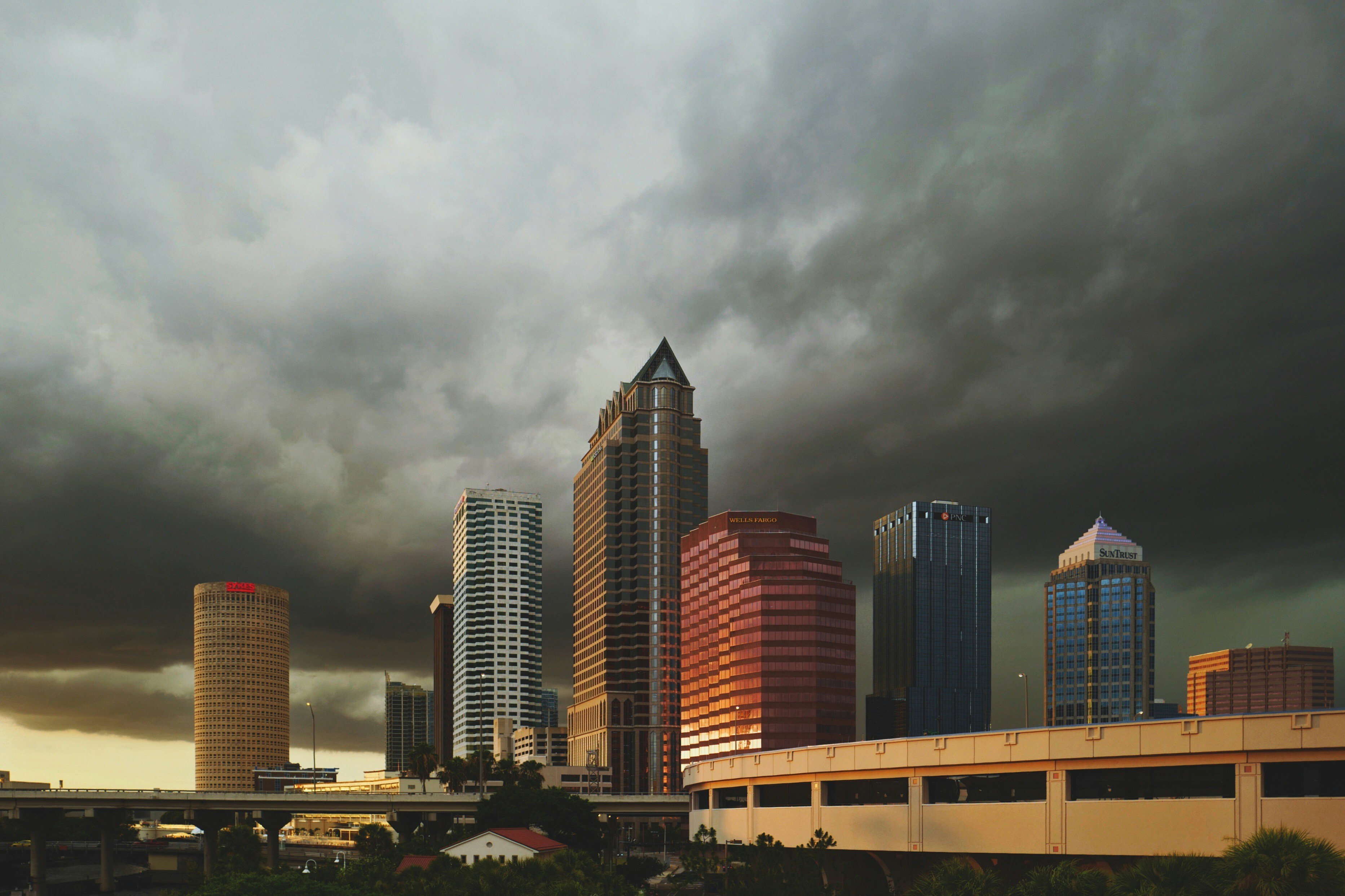
So, why is Jacksonville so bad? Well, the truth is, it’s a mixed bag — a sprawling city with some undeniable challenges but also plenty of charm and opportunity. From traffic woes and public transportation gaps to concerns about crime and education, Jacksonville faces hurdles that can frustrate residents and visitors alike. Yet, it’s also a city with beautiful beaches, a growing job market, and a vibrant cultural scene that’s steadily improving.
If you’re wondering whether Jacksonville is truly “bad,” our expert verdict at Jax Facts™ is this: it depends on your perspective and priorities. Like any large city, it has neighborhoods and aspects to avoid, but it also offers a quality of life that many find rewarding. The key is to dig deeper, explore the city’s hidden gems, and stay informed about ongoing improvements.
Remember those unresolved questions about the “boring city myth” or the “beaches vs. downtown divide”? Jacksonville is actively working on those fronts, with new entertainment venues, revitalization projects downtown, and community efforts bridging divides. So, don’t let the “bad” label scare you off — Jacksonville is a city in motion, with plenty of reasons to love it.
Recommended Links
Looking to dive deeper or get the best Jacksonville-related gear and info? Check these out:
-
Books on Jacksonville History & Culture:
-
Explore Jacksonville’s Top Attractions:
-
👉 Shop for Outdoor Gear Perfect for Jax’s Beaches & Parks:
Frequently Asked Questions (FAQ) About Jacksonville Living
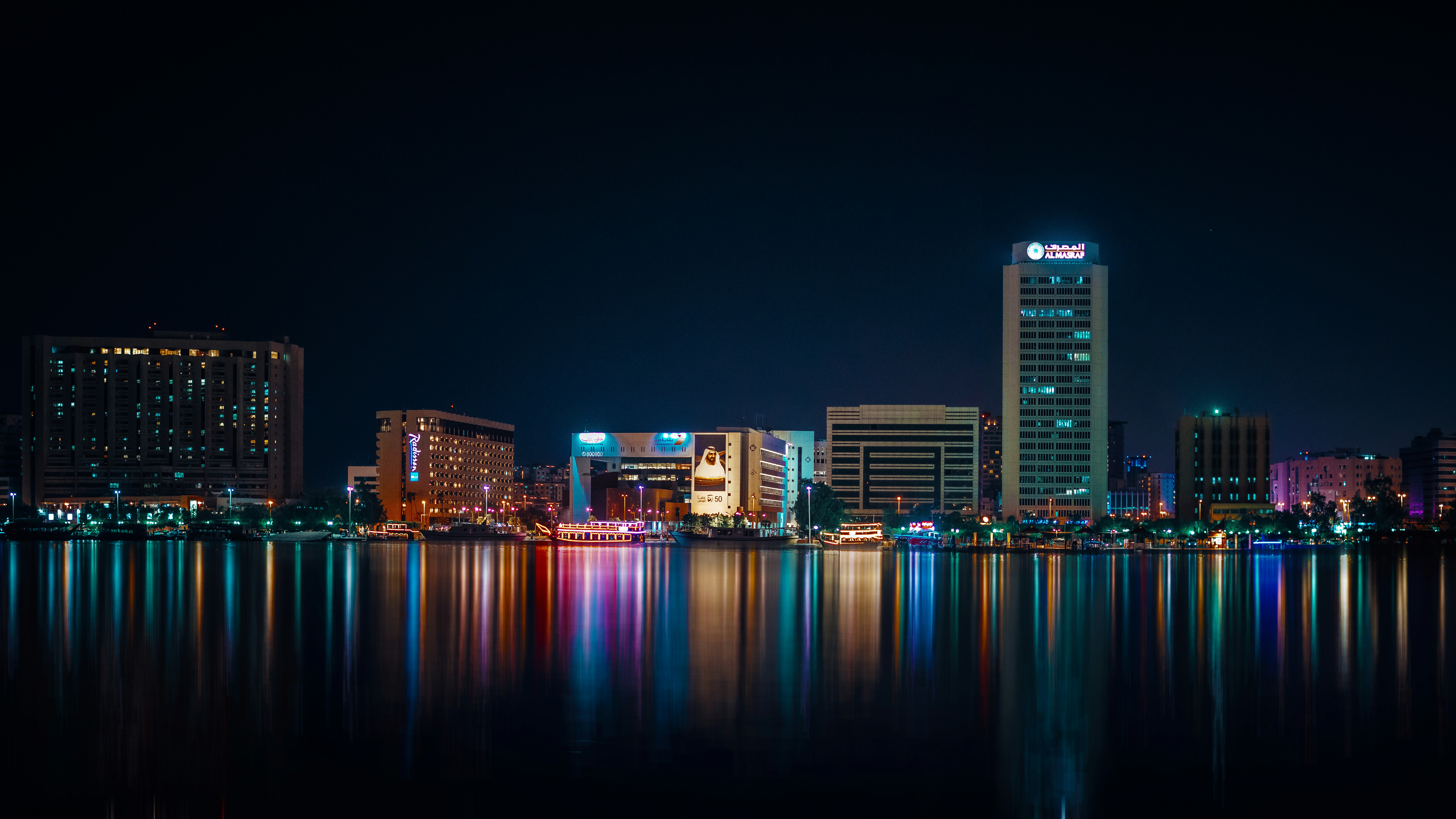
What are the most dangerous neighborhoods in Jacksonville?
Jacksonville, like many large cities, has neighborhoods with higher crime rates. Areas such as Eastside, parts of Northside, and some sections of Westside have historically reported higher violent and property crime rates. However, crime can vary block by block, and many neighborhoods within these regions are safe and community-oriented. It’s always best to consult up-to-date crime maps, such as those provided by the Jacksonville Sheriff’s Office, and visit neighborhoods personally before deciding where to live.
Is Jacksonville a good place to live and work?
✅ Yes, but with caveats. Jacksonville offers a relatively low cost of living, no state income tax, and a growing job market with companies like CSX Corporation and Fidelity National Financial. The city’s 22 miles of beaches and outdoor lifestyle are huge draws. However, challenges like traffic congestion, public school performance, and pockets of crime mean it’s not perfect. Your experience will depend on your neighborhood choice, career field, and lifestyle preferences.
Why is Jacksonville considered one of the worst cities in the US?
This perception largely stems from:
- Traffic congestion due to urban sprawl.
- Higher-than-average crime rates in certain areas.
- Public education challenges.
- Limited public transportation options.
- Environmental issues like flooding and hurricane risks.
However, these factors don’t tell the whole story. Many residents and newcomers find Jacksonville’s positives outweigh the negatives, especially when they choose neighborhoods wisely and engage with the community.
What are the pros and cons of moving to Jacksonville, Florida?
Pros:
- Affordable housing compared to other Florida metro areas.
- No state income tax.
- Access to beaches and outdoor activities.
- Growing job market.
- Diverse cultural and food scenes.
Cons:
- Traffic and urban sprawl.
- Public transportation limitations.
- Crime concerns in some neighborhoods.
- Summer heat and humidity.
- Public school system struggles.
For a detailed breakdown, see 15 HONEST Pros & Cons of Living in Jacksonville, Florida.
Read more about “Why Is Jacksonville FL So Big? 12 Surprising Reasons Explained! 🌆 (2025)”
Reference Links
- United States Census Bureau – Jacksonville Population
- Florida Department of Education – Duval County School Grades
- Jacksonville Sheriff’s Office Crime Data
- National Weather Service – Jacksonville Climate
- CSX Corporation Official Site
- Fidelity National Financial Official Site
- Jacksonville Environmental Protection Board
- The Honest Local – 15 HONEST Pros & Cons of Living in Jacksonville, Florida
- Jacksonville Jazz Festival
- Jacksonville Zoo & Gardens
- Cummer Museum of Art & Gardens
We hope this comprehensive guide helps you see Jacksonville through a clearer lens — not just the “bad” but the good, the improving, and the uniquely Jax! 🌴🐊

